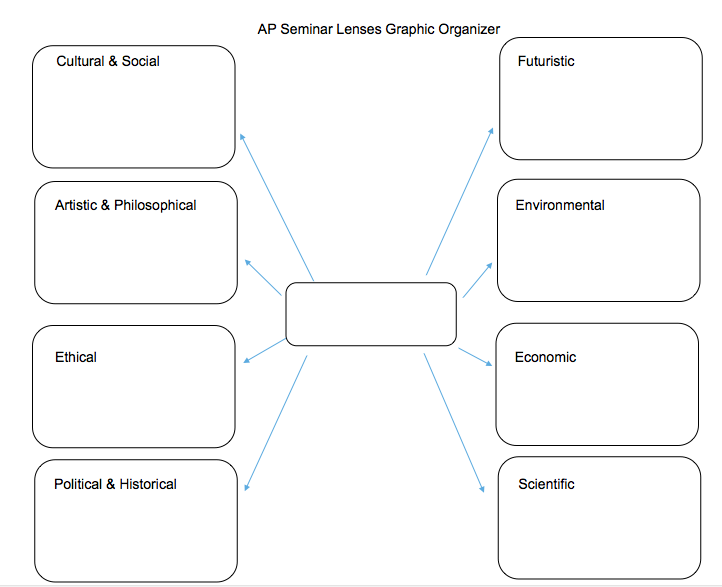The 2020 AP Seminar Exam is at 8:00 on Tuesday, May 12th, 2020. The final date for submission of Task 1 and Task 2 to the AP Seminar Portfolio is April 30th. Class due dates will be earlier.
Late work is not an option for you in this course. Any late assignment will result in a 10% deduction per day that it is late. The College Board will NOT accept late work past April 30th. Be advised.
Please download the syllabus for the entire school year here.
Unit 1 Unit Plans – consult this first if absent then see me for work. This is subject to revision.
Rubrics:
- Performance Task 1 College Board Rubric
- IRR Samples
- Performance Task 2 College Board Rubric
- IWA Samples
- End-of-Course Exam College Board Rubric

Important links:
- WheelerLibrary.com
- EBSCO
- GALE PowerSearch
- SIRS Researcher
- AP Seminar Portfolio Submission
Welcome to AP Seminar. This class is a year-long skinny course that will teach you the basics of academic research, formulating an academic research question and argument, and working within a team to create academic research based solutions to problems.
This is not a traditional class; this is the class that the College Board (along with AP Research) developed to teach you real-world skills that will carry over to, and prepare you for, college and any graduate/post-graduate work that you will do.
This course will equip you with the skills to analyze and evaluate information with accuracy and precision in order to construct and communicate evidence-based arguments. You will have the opportunity to explore real-world issues from multiple perspectives and consider varied points of view to develop deep understanding of complex issues and topics in order to make connections between these issues and your everyday life. Gain a rich appreciation and understanding of issues by reading articles, listening to speeches or broadcasts, and experiencing artistic and literary works.
The goals of the AP Seminar course include:
• Engage students with rigorous college-level curricula focused on the core academic skills necessary for successful college completion.
• Extend students’ abilities to synthesize information from multiple perspectives and apply skills in cross-curricular contexts and in new situations.
• Empower students to collect and analyze information with accuracy and precision.
• Cultivate students’ abilities to construct, communicate, and defend evidence-based arguments.
• Provide opportunities for students to practice disciplined and scholarly research skills applied to relevant topics of their interest and curiosity.
You must be logged in to post a comment.